BRAVEHEART. A Study In Masculinity
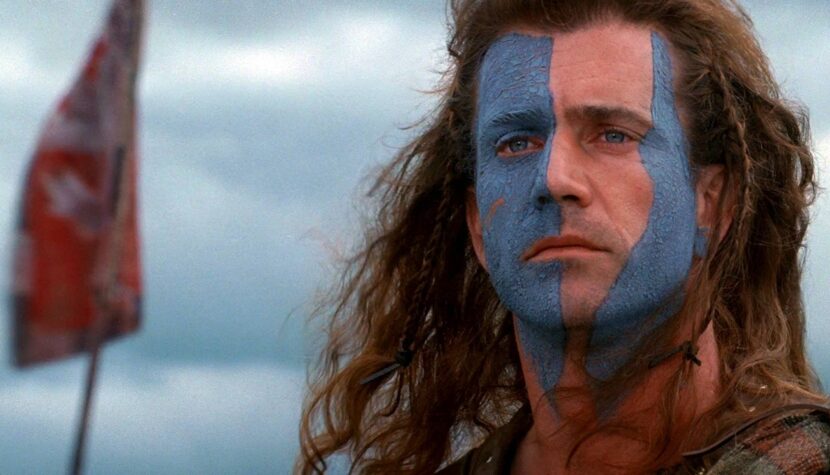
These are films that transcend the historical narrative they portray, achieving a fully universal significance in their message. In terms of execution, they serve as an unparalleled benchmark. Since their creation, they remain unforgettable, living on in the thoughts and emotions of their audience, influencing successive generations with their power. Yes, my friends, Braveheart is one of these films. So, what is the legend of this movie?
Scotland, at the turn of the 13th and 14th centuries. The Scottish king dies without leaving an heir. The country falls under English rule. The takeover by Edward I Longshanks is shrouded in exceptionally brutal circumstances – villages are ravaged by rape and murder. Meanwhile, the Scottish nobility, who should protect their people, secretly ally with Edward for power, privileges, and wealth. Sentiments grow, and Scottish peasants must bear the enormous burden alone. This country needs a hero. This country needs a warrior. And finally, he emerges from the people, scarred to his core. His name was William Wallace, Braveheart.
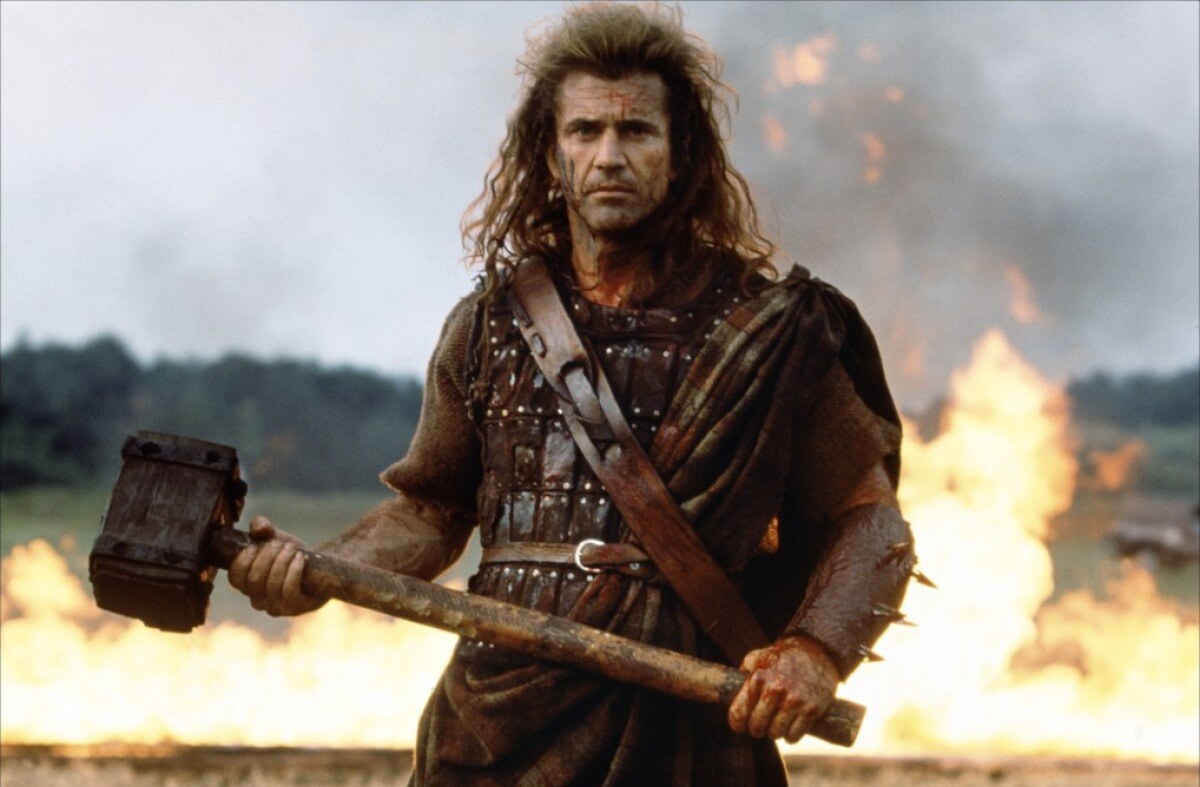
Everyone dies, but not everyone truly lives
Many years have passed since my first encounter with Gibson’s film. It’s fair to call it Gibson’s masterpiece because Braveheart is certainly not just an ordinary movie. Since then, much has changed in cinema and in my perception of it. Thus, my personal ranking often undergoes a kind of redefinition of works seen years ago. Although Mel Gibson‘s film thoroughly impressed me back in 1995, the year of its release, I feel that only now, at my current stage of awareness and conscience, can I fully appreciate it. Above all, I can now understand the messages it contains, which I couldn’t perceive before. I have grown up and seen the truth.
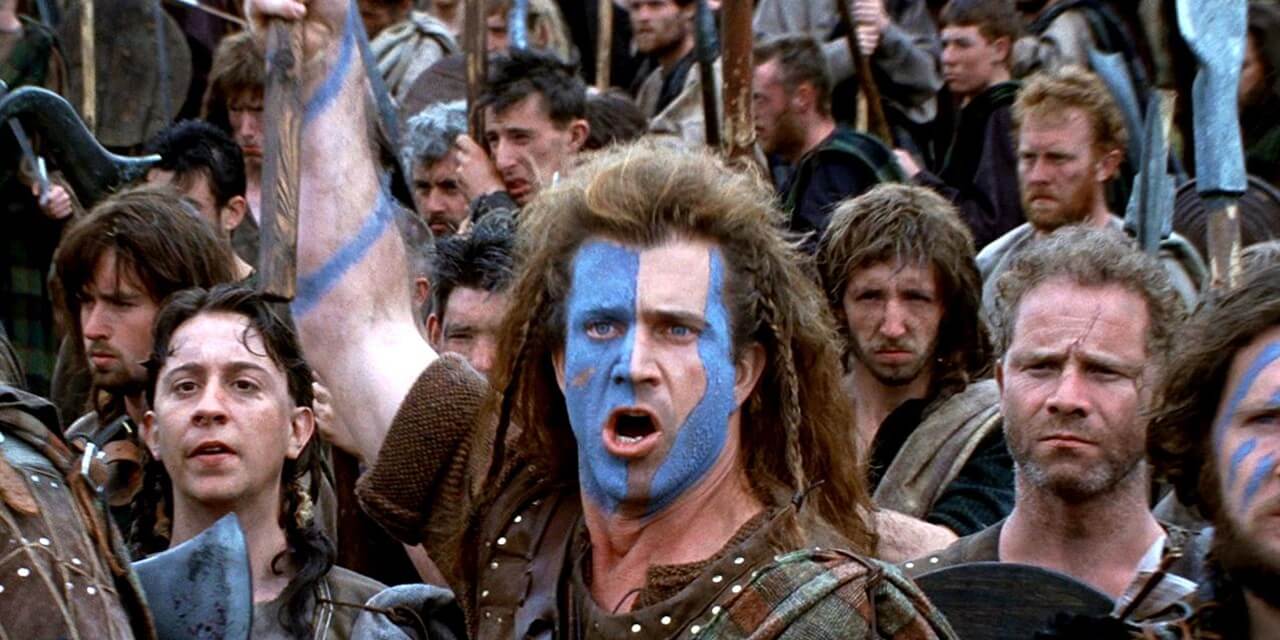
Mel Gibson, along with screenwriter Randall Wallace, gave the world a film that is seemingly historical. Seemingly, because they used the character of a real hero and the circumstances of his involvement in the Scottish uprising against the English to present a parabolic story with a fully universal resonance. We have long known that cinema is not an art for historical purists. They may resist and find many simplifications, mental shortcuts, if not outright falsehoods in Braveheart. However, that is not the essence of this presentation. The specific historicity serves merely as a backdrop, a vessel into which Gibson’s favorite motif is poured – the messianic motif. In it, a courageous individual steps forward and fights for the common good, ultimately accepting suffering. In the case of Braveheart, the ultimate good, worth the highest sacrifice, is freedom – a fundamental attribute without which life has little meaning.
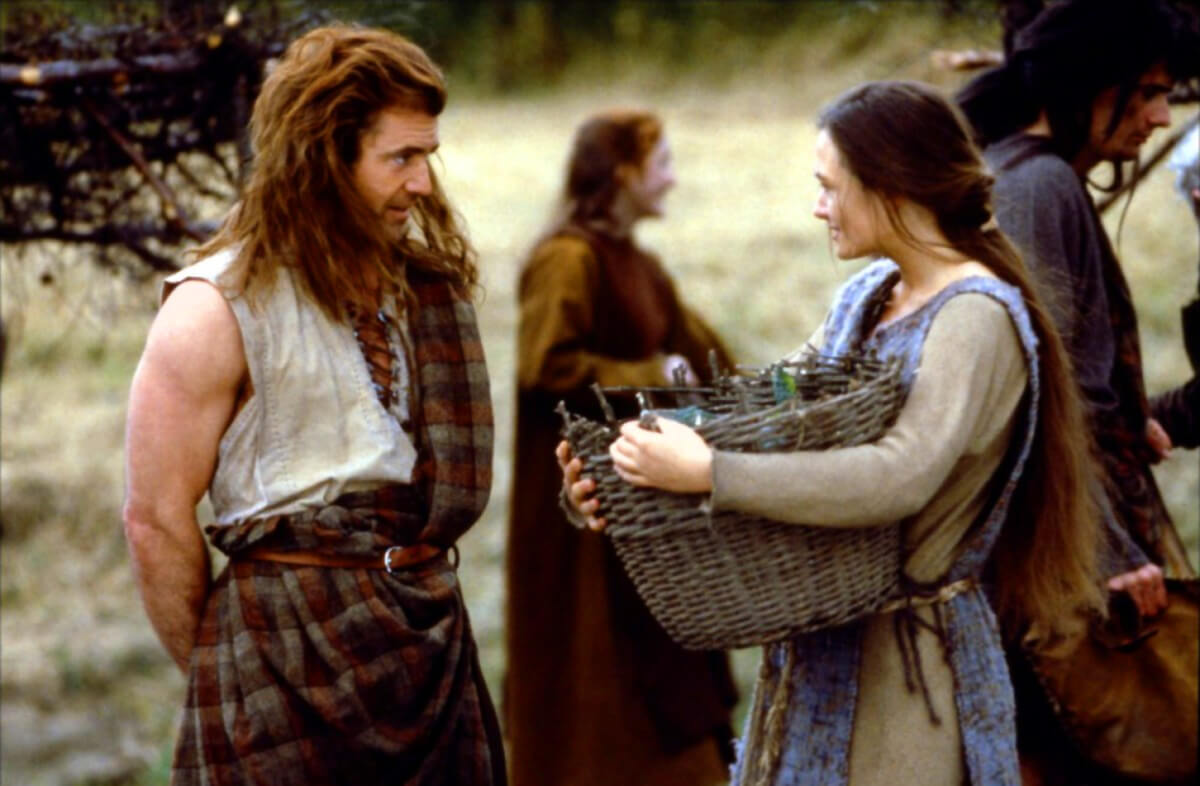
There is one scene in the film that serves as its calling card, containing the essence of what Gibson wanted to convey. I am, of course, referring to the moment before the first battle, where William Wallace, with his exceptionally stirring and beautiful speech, encourages his compatriots to fight. They are on the verge of giving up and returning home at the sight of the superior English forces. Wallace, however, does not give up; he knows he did not come to the battlefield in vain. The enemy troops make no impression on him, nor do the potential consequences of taking the risk. He is driven by a true and higher goal – breaking free from shackles. With all the strength of his brave heart, he strives to make his comrades understand the importance of this goal. Thus, a quote is born that has permanently entered the history of cinema.
Lying in your beds, many years from now, would you be willing to trade all the days from this day to that, for one chance, just one chance, to come back here and tell our enemies that they may take our lives, but they’ll never take our freedom!
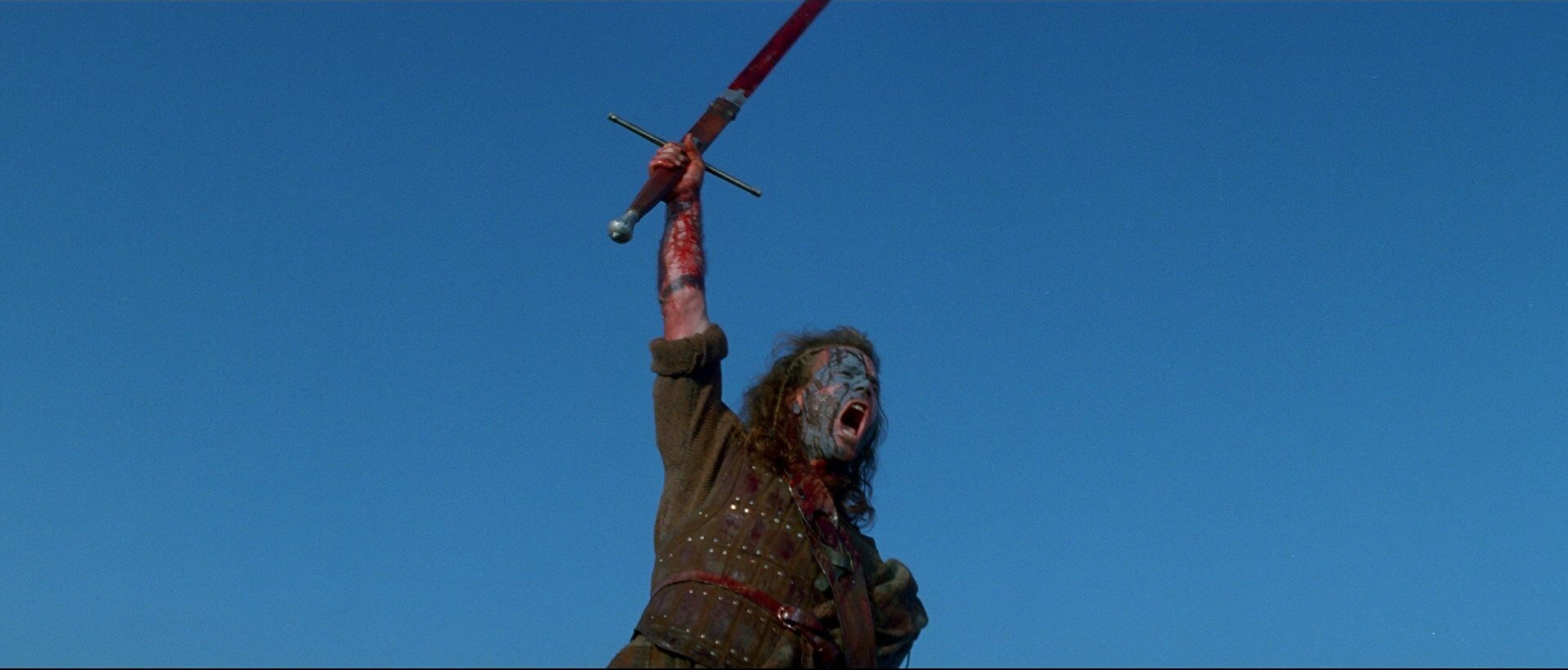
Whenever I see this scene of Braveheart, accompanied by James Horner’s absolutely exceptional music, chills run down my spine, and tears well up in my eyes. It was like this the first time, and it was the same during a recent rewatch. Similarly, with the final scene, where Wallace remains true to his ideals to the very end, even in the face of immense pain, suffering, and death. His strength and determination arouse my admiration, gripping my throat and evoking an exceptionally emotional reaction. I know, however, what exactly conditions this. The values for which the main character fights are not just empty slogans, sounding nice but having no reflection in reality. Their banner is the male heart with its eternal desires. Only when we look into it can we understand the motivation of the hero. Gibson’s film is, in a way, a study of masculinity, highlighting its most important features.
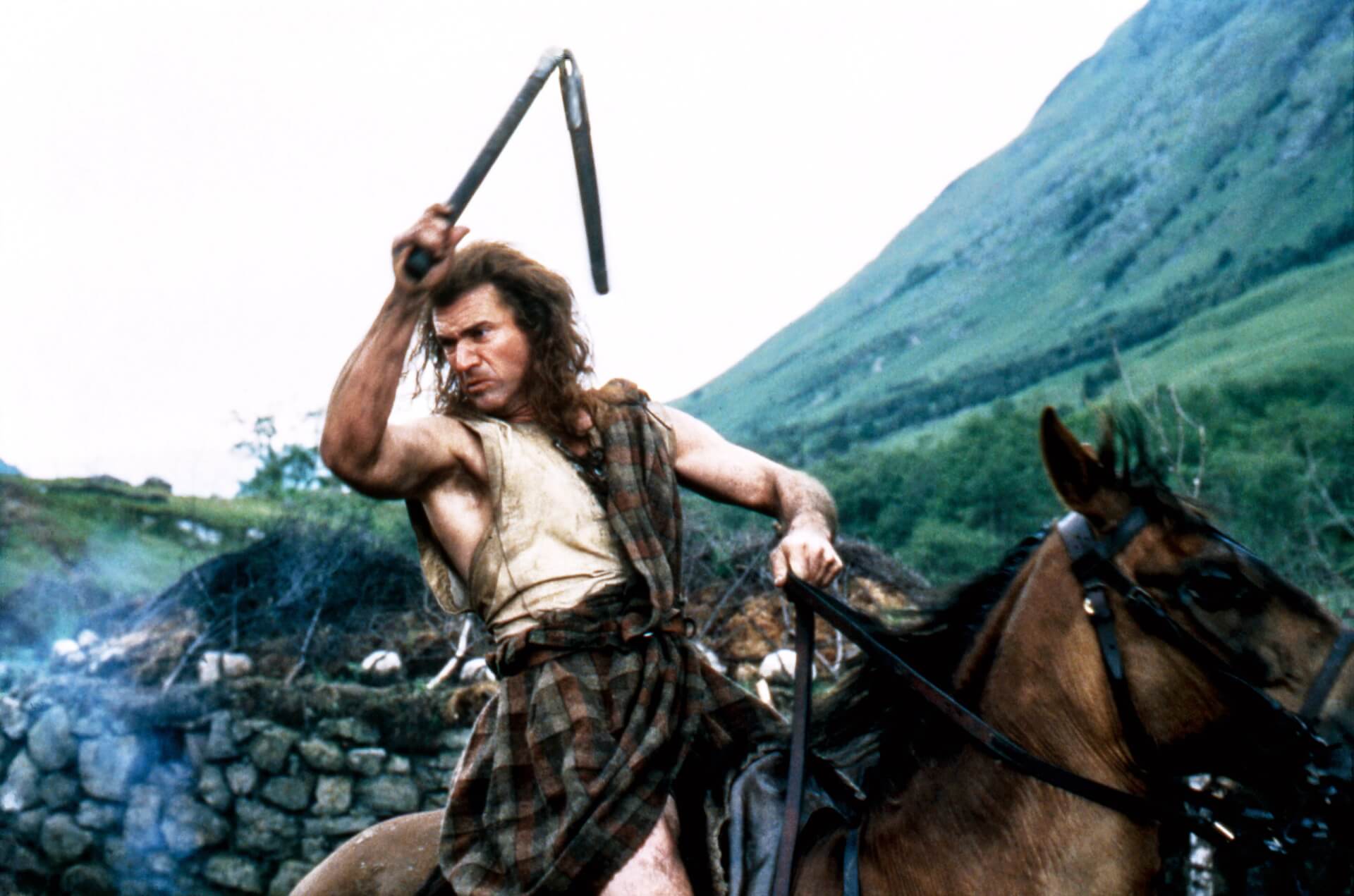
Let us start with the fact that a man is called to be with his Beauty and to be her support. This also includes an eternal longing for her. Notice what really drives Wallace’s actions in the film. To understand that evil surrounds him, the hero first must lose his beloved, must suffer defeat. At this moment, an awakening occurs. Wallace leads the uprising because he has had enough of living in fear. Fear paralyzing everyday life and robbing dignity. This rebellion is expressed with the most important attributes of masculinity – deeply hidden capacity for violence, aggression, and… risk. The hero proves that this very strength, properly directed, can overcome any adversity. A man striving for a goal rejects fear, disregards consequences, and follows the path of the idea.
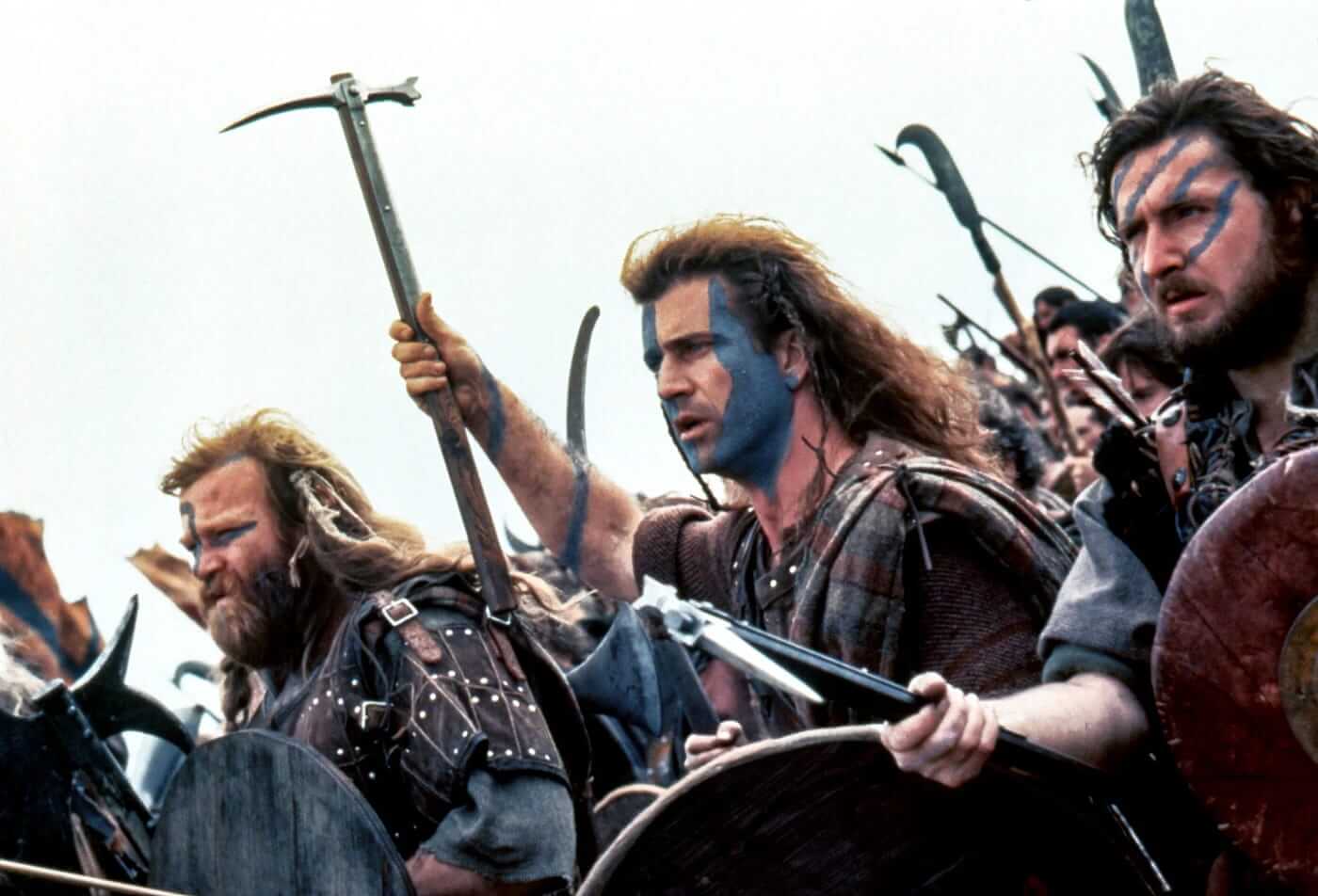
The opposite of the protagonist is the cowardly nobility, led by Robert Bruce. Although a masculine element glows within him, as he senses what the right action is, his leprous father, like a treacherous prompter, poisons his mind with false values. As a result, Bruce denies his own masculinity because by choosing safety, he becomes a puppet in the hands of the king. However, Gibson clearly indicates: it is not safety, but the ability to risk in the name of a higher value, even at the cost of downfall, that characterizes a true man. Dante Alighieri wrote in the Divine Comedy that a special circle of hell is reserved for those who choose neutrality in times of moral crisis. Paraphrasing this thought for Braveheart, one could say that a man is not one who chooses neutrality in times of oppression, but one who actively opposes that oppression, not remaining passive.
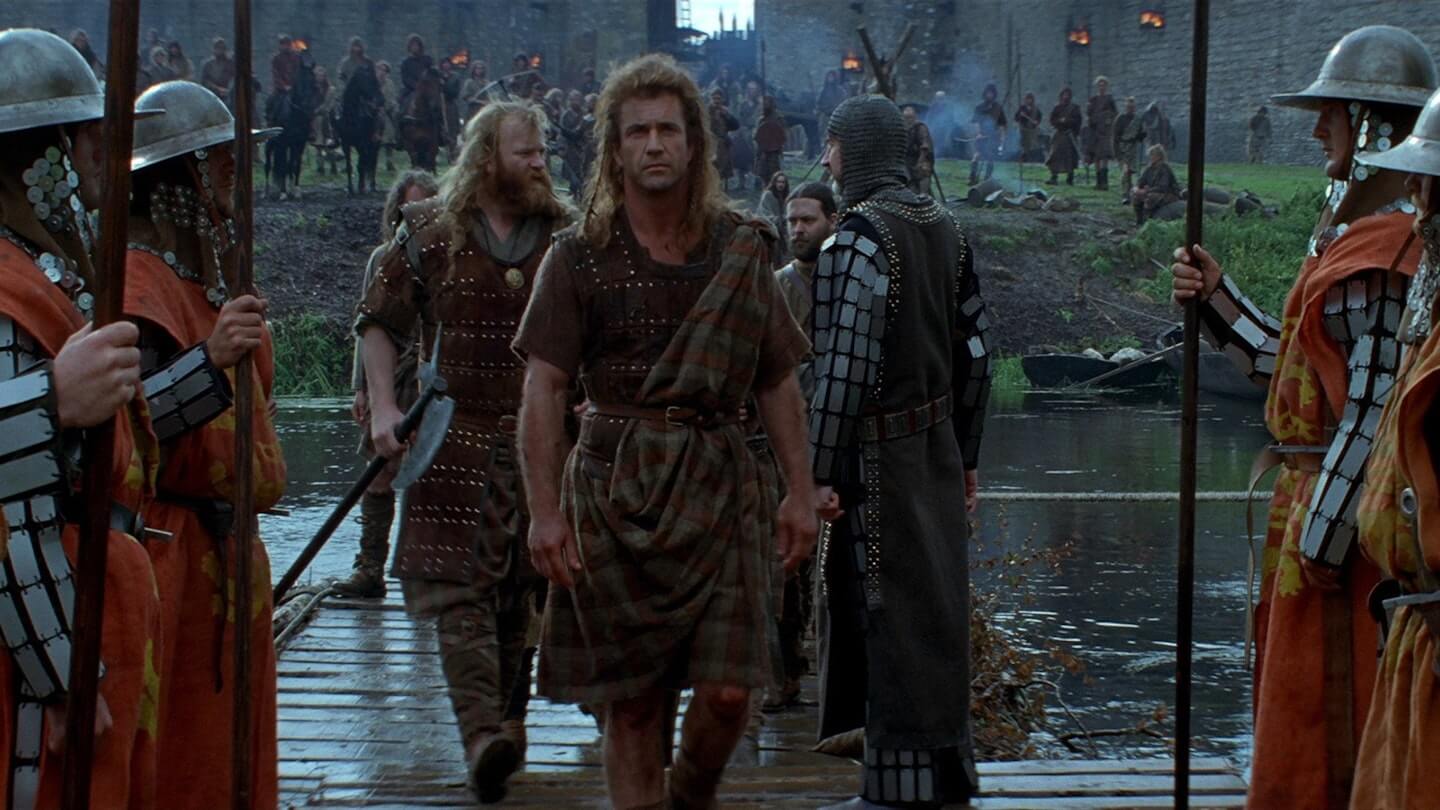
The heart of a man needs a fight. Although contemporary society effectively suppresses these urges, considering aggression a sign of inherent evil in humans, the truth lies elsewhere. It is aggression, violence, and the wildness of the male heart, led by actions and thoughts, that have shaped civilization. This is, of course, not an encouragement to fall into extremity and give oneself permission to launch baseless attacks on the weaker. As the father of the main character says in one scene, responding to his son’s assurance of his ability to fight:
I know you can fight, but it’s our wits that make us men.
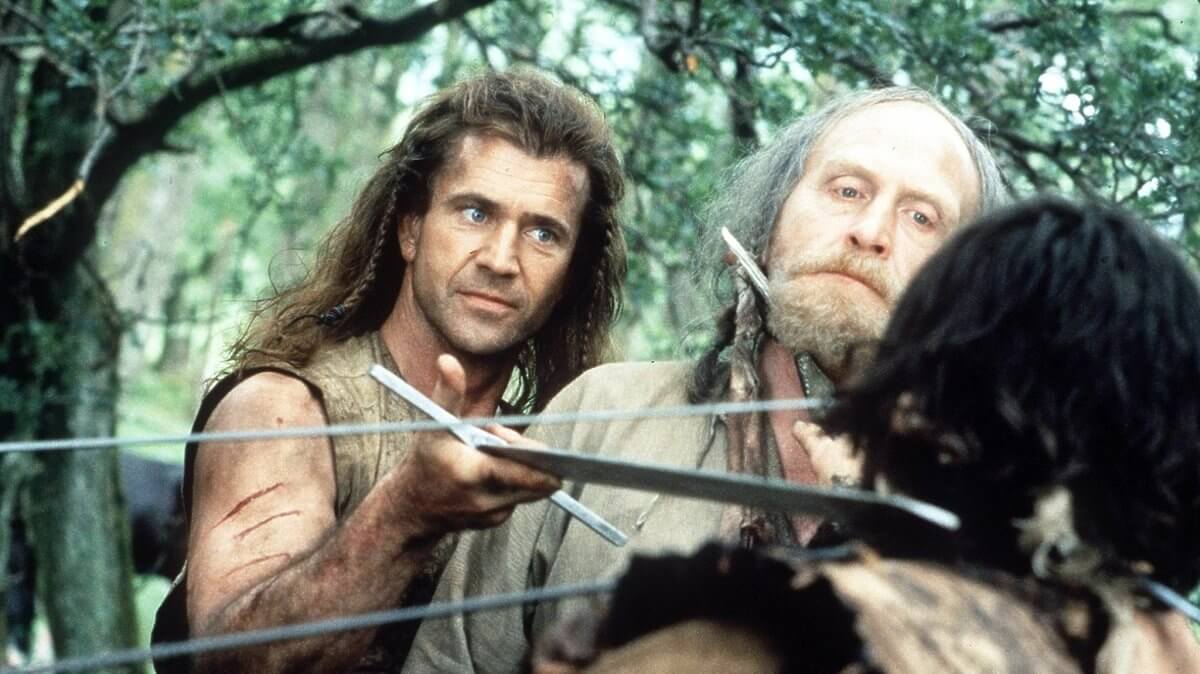
So what are we left with at the end of this beautiful story? It might seem that with an internal void and a sense of incompleteness because it does not end well. After all, the main character dies. We think, therefore, that everything he fought for was in vain. No, my friends, that’s not it. The ending of Braveheart is the truest happy end, but we do not want to see it that way because we live in perpetual fear. We habitually resort to all sorts of anesthetics to drive away the sad truth: that we do not live for ourselves, that we do not truly live. Wallace fought a battle and won. And everyone would like to die as a free person. So would I.
The inspiration for this text was the book Wild at Heart by John Eldredge. I recommend it to all who long for it.

